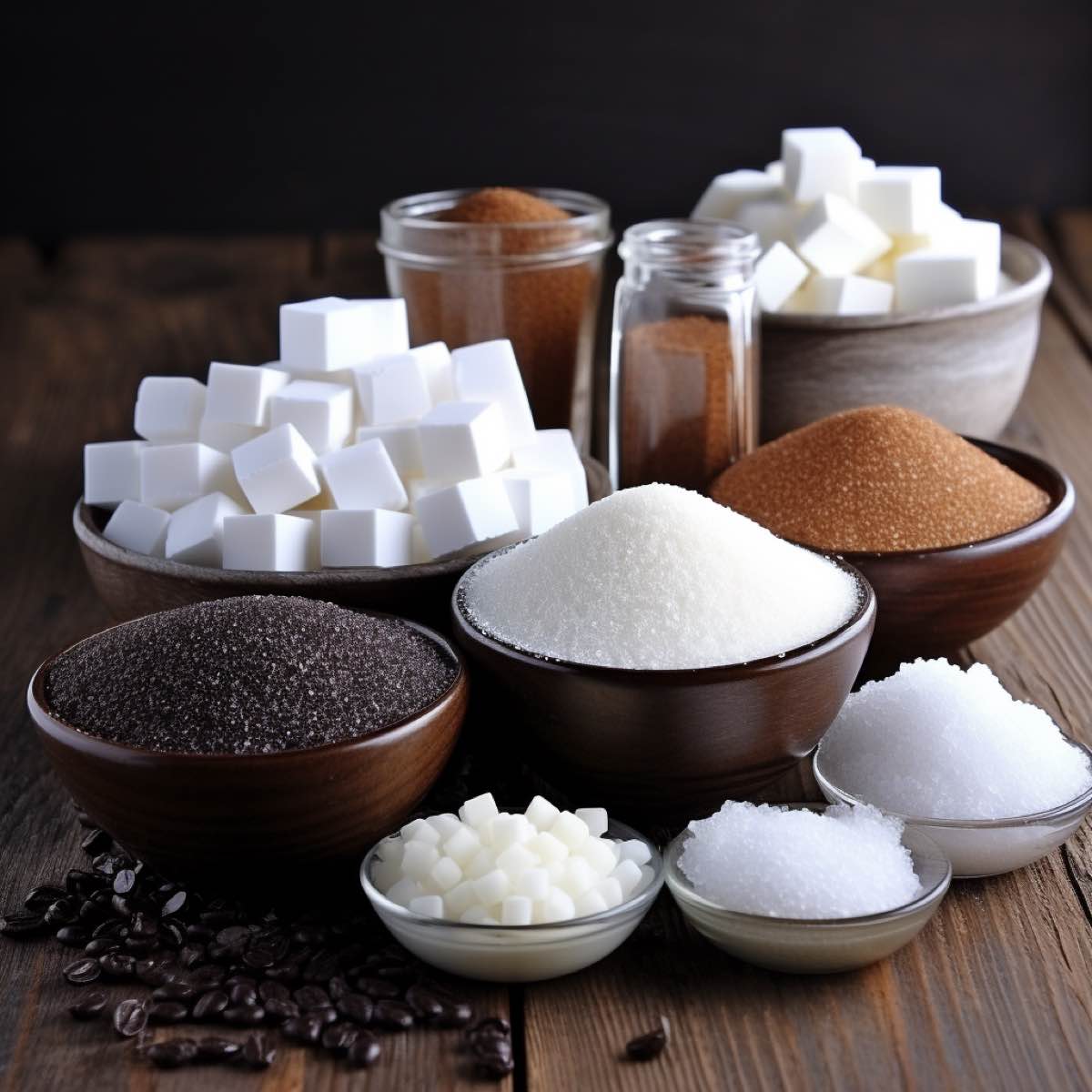Artificial sugar baking substitutes

Artificial Sugar Baking Substitutes
Are you looking to reduce your sugar intake but still want to enjoy your favorite baked goods? It is a fantastic solution! Whether you are on a diet, managing diabetes, or simply trying to make healthier choices, these alternatives can help satisfy your cravings without the guilt.
1. Stevia
Stevia is a natural sweetener derived from the leaves of the Stevia rebaudiana plant. It contains zero calories and has a high sweetness level, making it an excellent choice for those seeking to cut down on sugar. Stevia is available in both powdered and liquid form, and you can easily substitute it for sugar in your baking recipes. Remember that stevia is intensely sweet, so a little goes a long way. Use it sparingly and adjust the quantity based on your preference, but I find it a healthy sugar alternative.
2. Erythritol
Erythritol is a sugar alcohol that occurs naturally in certain fruits and fermented foods. It has almost zero calories and does not raise blood sugar levels, making it an ideal sugar substitute for diabetics and those following a low-carb diet. Erythritol has a taste similar to sugar and can be used in a 1:1 ratio in most recipes. It also provides a satisfying texture and helps to enhance the browning of baked goods.
3. Xylitol
Xylitol is another sugar alcohol often used as a sugar substitute in baking. It has a sweetness similar to sugar with around 40% fewer calories. Xylitol can be substituted for sugar in a 1:1 ratio, but be cautious when using it in large quantities as it may have a laxative effect for some individuals. It is important to note that xylitol is highly toxic to dogs, so be sure to keep any xylitol-containing products out of their reach.
4. Monk Fruit Extract
Monk fruit extract is a natural sweetener derived from the monk fruit, also known as Luo Han Guo. It has zero calories and is significantly sweeter than sugar. Monk fruit extract can be used in baking, but since it is much sweeter, you will need to adjust the quantity accordingly. It pairs well with other sweeteners, such as erythritol or stevia, to achieve a balanced taste in your baked goods.
5. Coconut Sugar
Coconut sugar is a natural sweetener made from the sap of coconut palm flowers. It has a caramel-like flavor and is considered to be a more nutritious alternative to refined sugar. While coconut sugar is not as sweet as regular sugar, it can still be used in baking by substituting it in a 1:1 ratio. Keep in mind that coconut sugar may slightly alter the taste and color of your baked goods due to its distinct flavor profile.
6. Applesauce
If you prefer a more natural and fruit-based alternative, applesauce is an excellent choice. It can be used as a substitute for sugar and fat in baking recipes. Applesauce not only provides sweetness but also adds moisture, making it particularly suitable for cakes, muffins, and quick breads. Replace sugar with applesauce in a 1:1 ratio, reducing the amount of liquid in the recipe slightly to compensate for the added moisture.
7. Banana Puree
Similar to applesauce, banana puree can serve as a healthy substitute for sugar and fat in your baked goods. The natural sweetness and creamy texture of mashed bananas make them a versatile ingredient in various recipes. Use ripe bananas and mash them until smooth to replace sugar in a 1:1 ratio. Keep in mind that the flavor of bananas will be present in the final product, so it works best in recipes that pair well with bananas, such as banana bread or muffins.
Conclusion
With the abundance of artificial sugar baking substitutes available, you can now enjoy your favorite sweet treats while maintaining a healthier lifestyle. Experiment with different options like stevia, erythritol, xylitol, monk fruit extract, coconut sugar, applesauce, and banana puree to discover the perfect substitute for your baking needs. Remember to adjust quantities accordingly and embrace the deliciousness of guilt-free desserts! Happy baking!
FAQ
What is Stevia and how can it be used as an artificial sugar baking substitute?
- Stevia is a natural sweetener derived from the Stevia rebaudiana plant. It can be used as a substitute for sugar in baking recipes and is available in powdered and liquid form.
What is Erythritol and why is it a suitable sugar substitute for diabetics and low-carb diets?
- Erythritol is a sugar alcohol that occurs naturally in certain fruits and fermented foods. It has almost zero calories, does not raise blood sugar levels, and can be used in a 1:1 ratio in most recipes.
How does Xylitol compare to sugar as a baking substitute, and what precautions should be taken?
- Xylitol is a sugar alcohol with a similar sweetness to sugar but with 40% fewer calories. It can be substituted for sugar in a 1:1 ratio, but large quantities may have a laxative effect. It is highly toxic to dogs.
What is Monk Fruit Extract and how does it differ from sugar in baking?
- Monk Fruit Extract is a natural sweetener derived from the monk fruit. It has zero calories and is significantly sweeter than sugar. The quantity used in baking needs to be adjusted accordingly, and it pairs well with other sweeteners to achieve a balanced taste.
